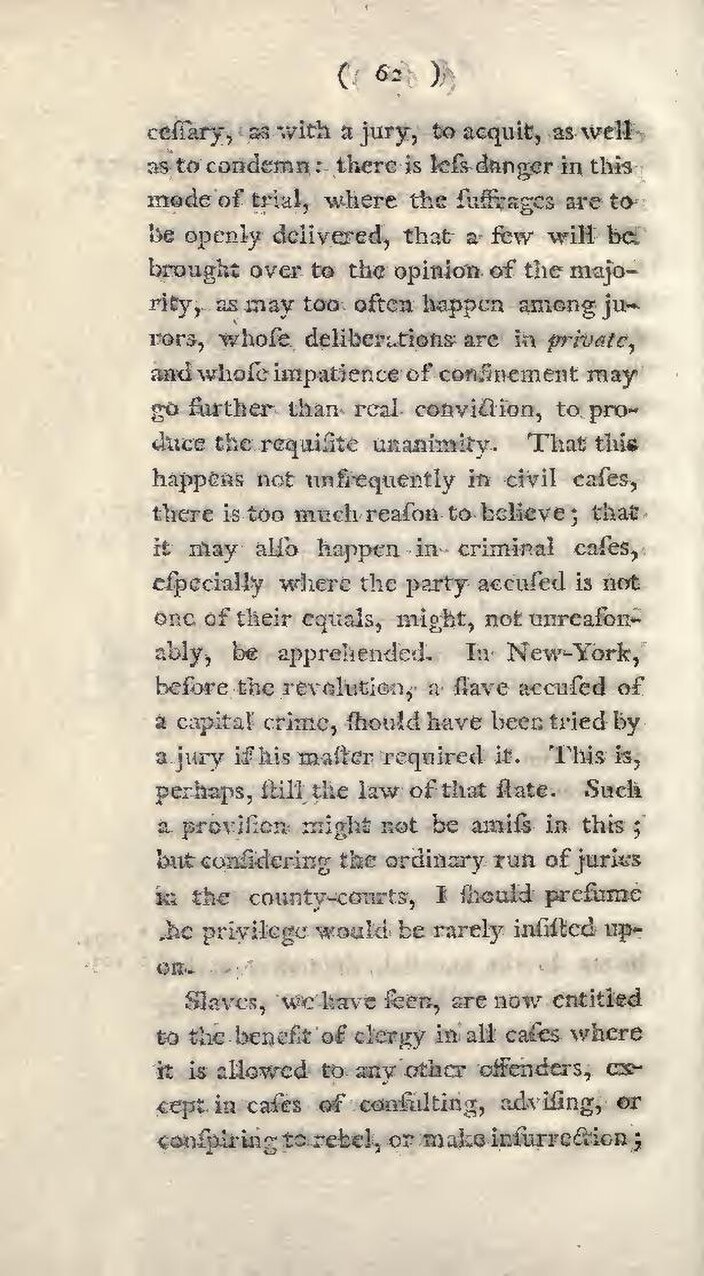( 62 )
cessary, as with a jury, to acquit, as well as to condemn: there is less danger in this mode of trial, where the suffrages are to be openly delivered, that a few will be brought over to the opinion of the majority, as may too often happen among jurors, whose deliberations are in private, and whose impatience of confinement may go farther than real conviction, to produce the requisite unanimity. That this happens not unfrequently in civil cases, there is too much reason to believe; that it may also happen in criminal cases, especially where the party accused is not one of their equals, might, not unreasonably, be apprehended. In New-York, before the revolution, a slave accused of a capital crime, should have been tried by a jury if his master required it. This is, perhaps, still the law of that state. Such a provision might not be amiss in this; but considering the ordinary run of juries in the county-courts, I should presume the privilege would be rarely insisted upon.
Slaves, we have seen, are now entitled to the benefit of clergy in all cases where it is allowed to any other offenders, except in cases of consulting, advising, or conspiring to rebel, or make insurrection;
